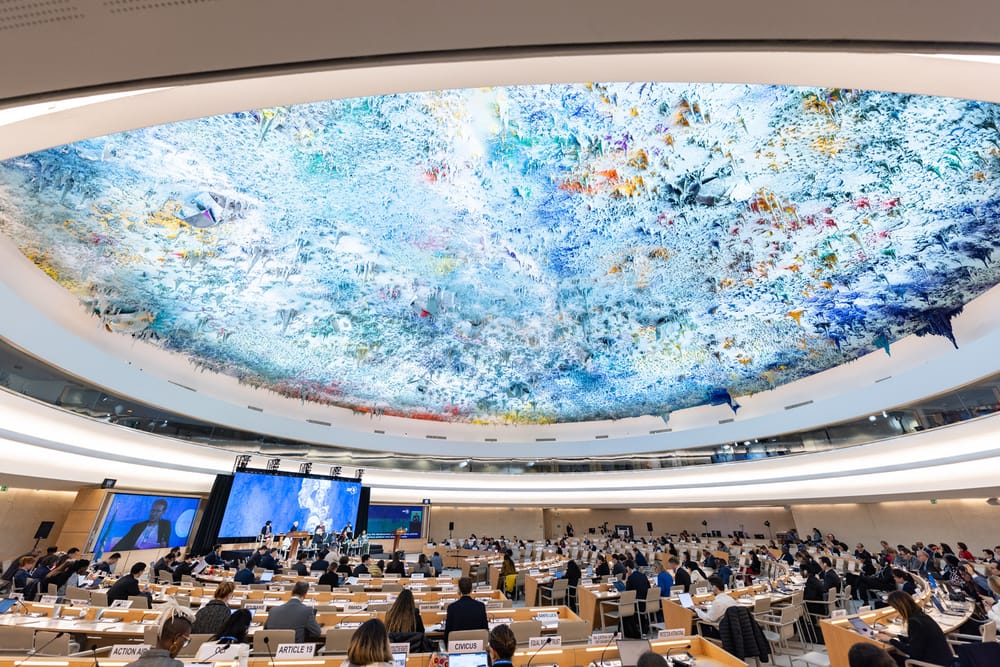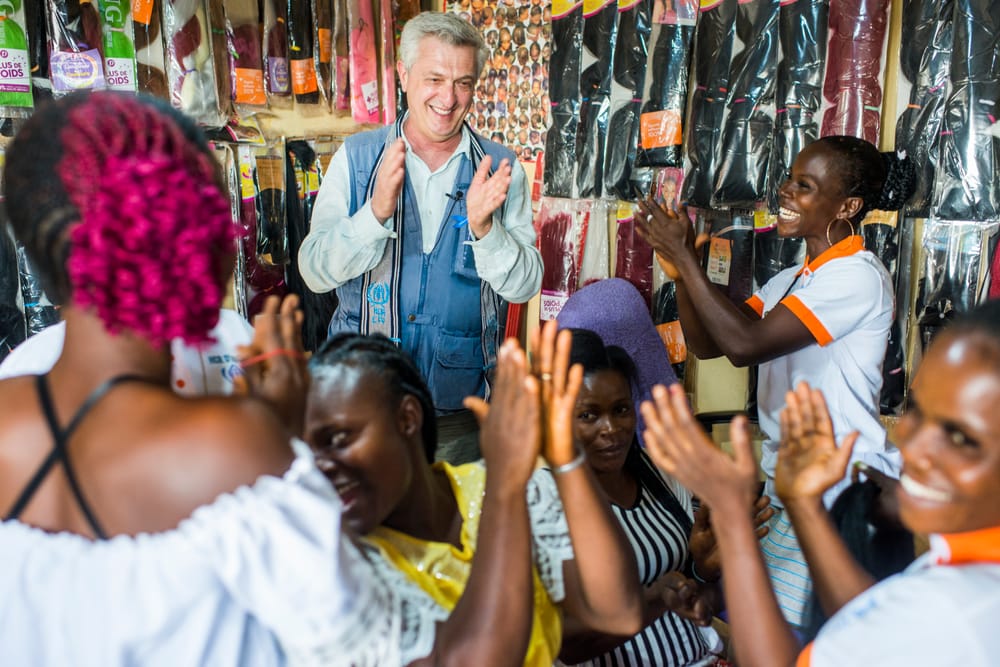By Daniel C. Esty, Trevor Sutton, Joel Trachtman and Jan Yves Remy
For many years, the World Trade Organization (WTO) occupied an enviable position as one of the world’s most effective and influential international economic organisations. Today, however, the organisation faces a legitimacy crisis as it navigates geopolitical circumstances defined by deep doubts about the neoliberal economic model that has underpinned the trade system since the 1980s, a virulent U.S.-China rivalry, and the unfulfilled development aims of the Global South. Compounding these issues, the WTO – or more precisely the 164 Members of the WTO – stand accused of failing to advance the global community’s commitment to climate change action and sustainable development. Thus, as the organisation approaches the 30th anniversary of its founding, the WTO Members face a stark choice: evolve to meet the challenges of the twenty-first century or drift toward the periphery of global governance.
As the organisation approaches the 30th anniversary of its founding, the WTO Members face a stark choice: evolve to meet the challenges of the twenty-first century or drift toward the periphery of global governance.
WTO in crisis
In one sense, the WTO’s current travails can be attributed to institutional design choices that have facilitated deadlock, stoked frustrations of both large and small economies, and left many believing that the global trade system is stacked against them. Above all, the WTO requirement that agreements be reached by consensus – which in the trading system tradition means that no Member objects – has hampered reform efforts. Indeed, until very recently, very little had been achieved through WTO negotiations since the body came into existence in 1995. The successful conclusion of talks on fisheries subsidies reform in 2022 stood out as a break with this disappointing track record and a welcome reminder that trade policy progress can be made multilaterally – albeit more slowly and incrementally than many of those clamouring for WTO reform would have liked.
In another sense, the global trade system is a victim of its own success. Designed as it was to increase economic integration and trade volumes, the WTO emerged so effective in its mission to clear away barriers to trade that it left an imbalance in the ability of the international system to regulate the resulting commerce. As a result, some members are now chafing against the very system they created. In the case of the US, this shift has been nothing less than a volte-face. Once the leading proponent of trade liberalisation, the world’s largest economy has since 2018 paralyzed the WTO’s much-vaunted dispute resolution system by blocking judges to its Appellate Body.
The headwinds facing the WTO have grown stronger over the past few years as a series of shocks and escalating geopolitical tensions have roiled global markets and snarled supply chains, leading major economies to speak of decoupling, nearshoring, and even deglobalization. In many nations, the notion that economic interdependence supports peace and security, a bedrock principle of the post-war economic order, seems to have been forgotten. In the words of WTO Director General Ngozi Okonjo-Iwaela, this principle is “under attack, and its achievements are in danger.”
Crisis brings opportunity as the saying goes. But opportunity alone will not save the WTO unless its Members can agree on an “underlying mission and ethos” that rebuilds belief in the trade system’s ability to address the great challenges of the moment as Dmitry Grozoubinski put it in the Geneva Policy Outlook 2023.
Reimagining the road ahead
Rather than succumbing to economic fragmentation, the WTO Members should commit to regearing the global trade system for a sustainable future.
Despite its present fragility, the trade system can still be a powerful lever for transformative change. A reformed international trade regime could establish new rules and procedures of global commerce that promote a just transition towards a clean energy future and thus a shift toward a more sustainable international economic order. Indeed, it is not an overstatement to say that many of the most acute problems facing human civilization today cannot be solved without trade – and its capacity to disseminate cutting-edge ideas, technologies, services, and infrastructure at speed and scale across the world. Writing off the WTO thus puts at risk the potential for success in the fight against climate change, loss of biodiversity, food insecurity, inequality, pandemic response, and other threats.
Rather than succumbing to economic fragmentation, the WTO Members should commit to regearing the global trade system for a sustainable future. In a recently released analysis, the authors of this article and a number of other colleagues participating in the Remaking Global Trade for a Sustainable Future project set out a comprehensive trade reform agenda – the Villars Framework for a Sustainable Trade System – designed to make the WTO and other multilateral trade institutions fit-for-purpose in the 21st century. Key elements of this agenda would:
- Reiterate the commitment in the 1994 Marrakesh Agreement that created the WTO to advancing trade in a manner that promotes sustainable development;
- Recognize that the trade system but be responsive to the broader policy context in which it operates and current public priorities – most notably the need for alignment with the world community’s commitment to climate change action agenda under the 2015 Paris Agreement and to net-zero greenhouse gas emissions by mid-century target established by the 2021 Glasgow Climate Pact;
- Advance a new approach to subsidies that goes beyond the present focus on the potential for trade distortion to a new emphasis on the purpose of the government support and the question of whether the funding promotes sustainability or diminishes it – which could facilitate the repurposing of trillions of dollars in harmful subsidies toward the clean energy transition, sustainable agriculture, and other sustainability goals;
- Restructure border carbon adjustment mechanisms to ensure that such systems are interoperable with one another, carefully designed based on agreed methodologies, and do not place undue burdens on trade partners, most notably developing countries;
- Encourage more inclusive standard setting processes for traded goods, services, and technologies that maintain market access while advancing sustainability goals;
- Recharter the International Trade Centre (ITC) – the Geneva-based organisation focused on creating export opportunities for small- and mid-sized enterprises in developing countries – as a Sustainable Trade Centre with an expanded capacity-building mandate, innovation focus, and greater resources to help these enterprises meet the emerging sustainability standards that they face in many markets;
- Relaunch of a sustainable goods/services/technology initiative to eliminate tariffs and other barriers to trade on factors essential to sustainable development;
- Promote WTO governance and institutional reform processes to enhance the agility of trade system deliberations and decision-making
Over the next year, there are a number of high-profile events that present opportunities to move this agenda forward, including the 13th WTO Ministerial Conference in Abu Dhabi in February, which could serve as a launching pad for a multi-year reform process. Building a coalition around sustainable trade in these venues will require the WTO Members to bring a new spirit of commitment to reform and to engage far more robustly and consistently with the business community, civil society organisations, and other international institutions including the International Labor Organization, UN Conference on Trade and Development, UN Environment Program, and International Organisation for Standardization.
For the WTO and the trade system, the greatest risk going forward is inertia. Around the world, governments are investing billions in jumpstarting the low-carbon industries that are poised to dominate the global economy in the second half of the twenty-first century. It remains an open question whether that green transition will occur on terms that encourage fair competition, shared prosperity, and sustainable development – or rather a global slide towards mercantilism plagued by destabilising rivalries, growing wealth gaps, and offshoring of pollution and other social ills. A revitalised and inclusive trade system could provide a crucial point of leverage for responding to climate change, shifting the global economy toward a sustainable future, and managing international economic interdependence, but only if its leaders commit with conviction to urgent transformational reform.
About the authors
Dan Esty is the Hillhouse Professor at Yale University with joint appointments at Yale Law School and Yale School of the Environment.
Trevor Sutton is the Research Director of the Remaking Trade Project and a non-resident senior fellow with the Energy and Environment department at the Center for American Progress.
Joel P. Trachtman is Professor of International Law at The Fletcher School of Law and Diplomacy, Tufts University.
Jan Yves Remy is Director of the Shridath Ramphal Centre for International Trade Law, Policy and Services at the University of the West Indies
All four authors of the article were the authors of the Villars Framework.
The opinions expressed in this publication are those of the authors. They do not purport to reflect the opinions or views of the Geneva Policy Outlook or its partner organisations.





